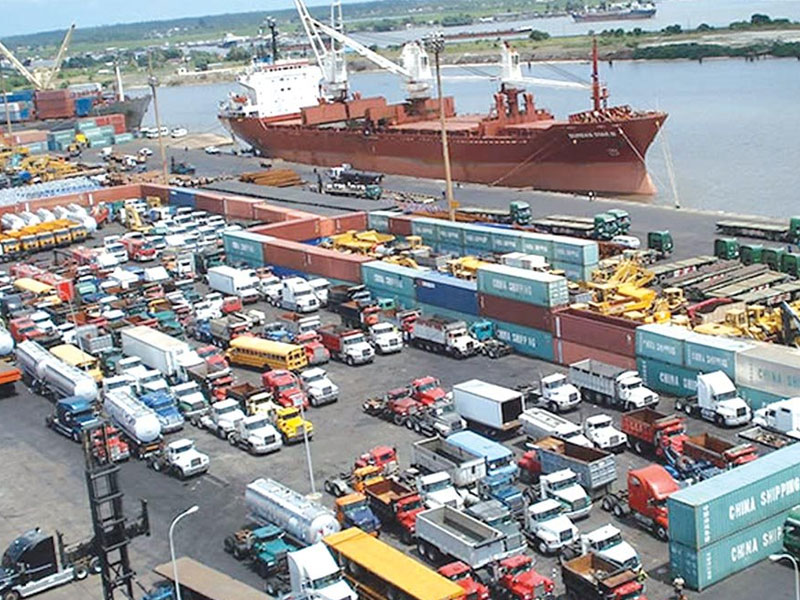Commercial shipping is the business of transporting goods and persons by sea. This article talks about maritime claims arising from maritime disputes in the course of the business of transportation of goods and persons by sea in Nigeria.
Maritime claims arise in relation to the ownership, possession, mortgage and general operation of a ship and are primarily enforced by an admiralty action in rem or in personam.
Read more about Law
Maritime Claims
Maritime Law is the body of law governing marine commerce and navigation, the transportation at sea of persons and property and marine affairs in general.
Maritime claims are claims in relation to which a ship may be arrested within the admiralty jurisdiction of the Federal High Court. Section 251(1)(G) of the 1999 Constitution provides that the Federal High Court is the only court in Nigeria, exclusively vested with the jurisdiction to hear and determine maritime claims and other admiralty causes or matters, whether civil or criminal.
In Nigeria, Maritime claims that are enforceable in the Federal High Court are classified into two categories namely: proprietary maritime claim and general maritime claim.
Proprietary Maritime Claim:
This is a reference to claims relating to:
- Possession of ships;
- Mortgage claims;
- Co-ownership disputes: this is a claim between co-owners of a ship relating to the possession, ownership, operation or earning of a ship;
- Claims for the enforcement of a judgment given by the Court or any court (including a court of a foreign country) against a ship or other property in an admiralty proceeding in rem.
General Maritime Claim:
This relates to claims that involve:
- Collision claims;
- Damage to a ship;
- Loss of life or personal injury caused by a ship;
- Loss of or damage to goods carried by a ship;
- Claims arising from agreements for carriage of goods or persons by a ship or for the use or hire of a ship;
- Salvage claims;
- General average claims;
- Claim in respect of pilotage of a ship;
- Towage of a ship or an aircraft when it is waterborne;
- A claim for goods, materials or services supplied or to be supplied to a ship for its operation or maintenance;
- Claims in respect of the construction of a ship;
- Claims for alteration, repair or equipping of a ship or dock charges or dues;
- Claims for port charges or tolls, or dues of any kind in relation to a ship;
- A claim arising out of bottomry;
- A claim by master, shipper or agent for disbursement on account of a ship;
- Claims for insurance premiums due on a ship or its cargo
- Claims for wages of crewmen;
- Claims for forfeiture or condemnation of a ship or goods carried thereon;
- Claims for enforcement of arbitral awards in proprietary maritime claims;
- And claims for interest in any proprietary maritime claim.
How To Make Maritime Claims
Maritime claims are categorized into two. These are actions in personam or an action in rem.
1. Actions in Personam: An action in personam is an action against individuals who may be carriers, owners, charterers, managers and operators of ships. It is an action to compel someone to do or not to do a particular thing or take or not to take a particular course of action or inaction. It should be noted that, as a matter of principle of law, the fact that, a Judgment was obtained in an action in personam, does not mean that, it is not enforceable against the assets of the party sued irrespective of the nature of the claim.
Similarly, depending on the circumstances of a case, a claim or liability in personam could be pursued through an action in rem.
2. Actions in Rem: An action in rem is an action instituted against the ship or vessel. An action in rem is one in which the subject-matter is itself sought to be affected, and in which the aggrieved party is enabled to arrest the ship or other property. Such party will have the right to the property attached, detained until the party’s claim has been adjudicated upon or until security by bail has been given for the amount or for the value of the property proceeded against where that is less than the amount of the claim.
A judgment in an action in rem does not preclude the claimant from bringing a subsequent claim in personam against the owner of the vessel in the same claim where the proceeds of sale of the res are insufficient to cover the damages awarded in the rem action.
Claims To Arrest A Ship
When seeking to arrest a ship in the territorial waters of Nigeria, a person or entity must satisfy the court that his or her claims are consistent with the proprietary maritime claim or general maritime claims, as discussed earlier.
After been certain that the claim falls within the meaning of a maritime claim as defined by the Act, the applicant may start the proceedings by filing an action in rem at the Federal High Court in the judicial division covering the port or area where the ship is located.
In filling the application, the applicant must state by affidavit things like the nature of the claim; that the ship is within the jurisdiction of the Court; also shows exhibits supporting the claim and so on. The documents listed as exhibits have to be presented to the Court in support of the claim.
Sign up to the Connect Nigeria daily newsletter
However, it should be noted that Nigerian Courts will only entertain application for an arrest only when the ship has entered its jurisdiction. The court often orders security for cost from the applicant where the claim is in excess of One Million Naira (N1,000,000.00) or its foreign equivalent, or when the plaintiff has no assets in Nigeria. The security often required is a deposit of the sum specified by the court, a bank or an insurance company.
When determining the security to be provided, the Court often considers all the circumstances of the case with no restriction to the cost of the legal proceedings. An order for arrest does not usually take long after filing the requisite process and may be obtained within 24 hours of filing through a motion ex-parte (an application where the party making the application is the only one that needs to be seen and heard in court).
Featured Image Source: The Sun NG
Did you find this article useful? Contact us: [email protected]


